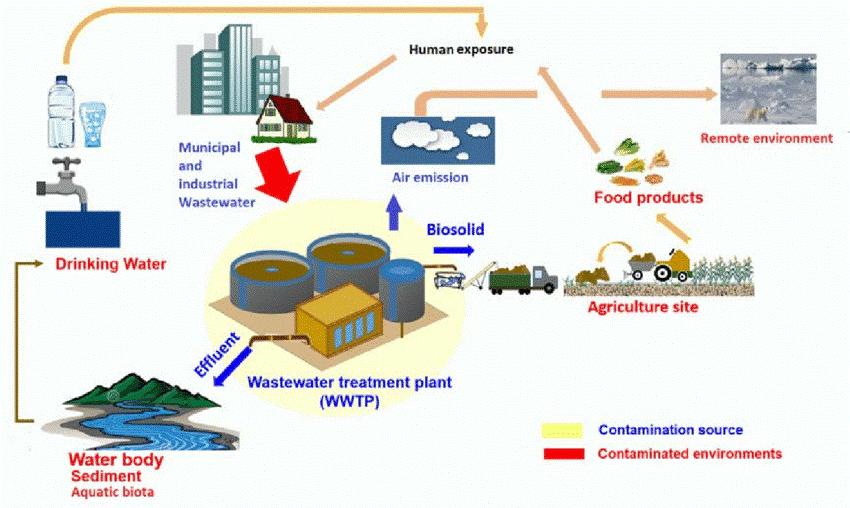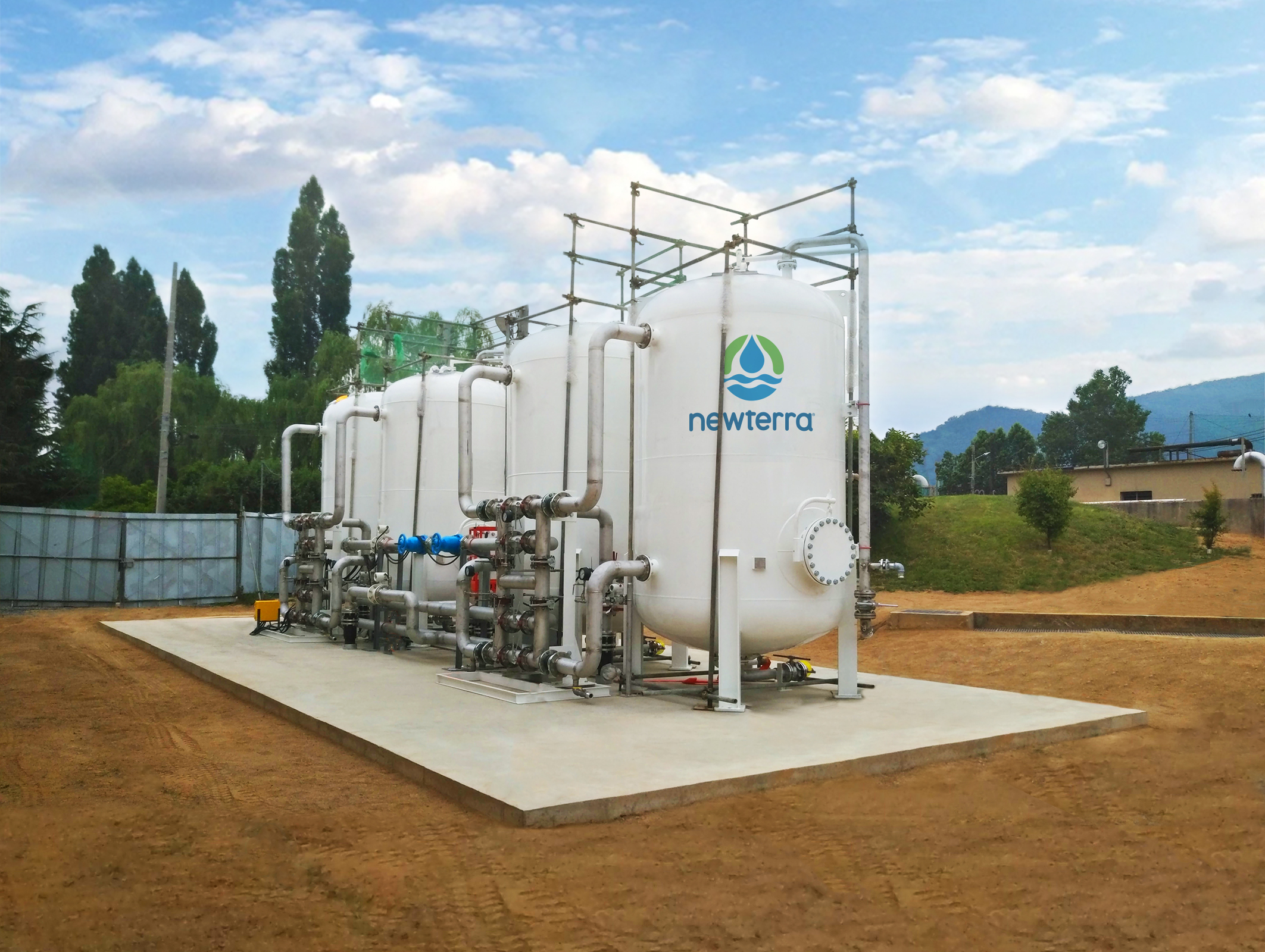Just How PFAS Therapy Makes Certain Tidy and Lasting Water
The presence of PFAS, typically known as "for life chemicals," postures substantial difficulties to water top quality and public wellness. Advanced therapy modern technologies, consisting of triggered carbon adsorption and membrane filtration, have become efficient options to mitigate these impurities. By utilizing these approaches, neighborhoods can not only accomplish cleaner water however likewise foster sustainable techniques that shield ecosystems. Nonetheless, the effects of these treatments prolong past immediate wellness advantages; they elevate essential concerns concerning long-lasting water management approaches that must be addressed to ensure a resilient future. What does this mean for our strategy to water sustainability?

Understanding PFAS Contamination
PFAS, or per- and polyfluoroalkyl materials, have actually emerged as a significant environmental worry due to their widespread occurrence and perseverance in the setting. These synthetic chemicals have been utilized in numerous commercial applications and customer items, including non-stick cookware, water resistant apparel, and food product packaging, as a result of their unique homes such as water and grease resistance.
The contamination of dirt and water resources by PFAS occurs primarily via commercial discharges, firefighting foam usage, and seeping from land fills. pfas management. Once launched, these substances are resistant to degradation, causing their accumulation in the environment. This determination elevates crucial issues, as PFAS can travel cross countries with groundwater and surface water systems, affecting alcohol consumption water products and ecological communities

Health And Wellness Dangers of PFAS
The perseverance of PFAS in the atmosphere raises significant health concerns for individuals revealed to these substances. Called "for life chemicals," PFAS do not break down conveniently and can build up in bodies gradually. Research has actually linked PFAS direct exposure to different adverse health and wellness results, including immune system disorder, liver damages, and increased risk of particular cancers cells - pfas management. Especially, studies have shown elevated cholesterol levels and possible influences on reproductive and developmental health and wellness, specifically in expecting individuals and babies.
The universality of PFAS in consumer items, such as non-stick cookware, water-repellent fabrics, and food product packaging, further enhances the threat of direct exposure. Consuming alcohol water contaminated with PFAS is a significant issue, as these chemicals can seep right into groundwater sources. Prone populations, consisting of children and those living near commercial websites, might deal with heightened risks because of their establishing systems and prospective for higher direct exposure degrees.
As recognition of these health risks proceeds to expand, regulatory firms are beginning to develop guidelines for PFAS levels in alcohol consumption water. Public wellness initiatives are necessary to reduce direct exposure and shield neighborhoods from the lasting results of these unsafe substances.

Ingenious Therapy Technologies
Just how can we properly tackle the obstacles presented by PFAS contamination in water resources? Innovative treatment technologies are emerging as crucial options in the mission for tidy water. These approaches concentrate on the removal or damage of per- and polyfluoroalkyl materials (PFAS), which are well-known for their persistence in the atmosphere.
One promising technique is adsorption making use of innovative materials, such as activated carbon and ion exchange materials. These materials have revealed effectiveness in catching PFAS molecules from water. One more significant modern technology is membrane filtering, which utilizes nanofiltration and reverse osmosis to different contaminants at the molecular degree, therefore giving a barrier versus PFAS.
Furthermore, progressed oxidation processes (AOPs) use strong oxidants to site break down PFAS substances into safe byproducts. This approach is particularly reliable for treating extremely infected water resources. Bioremediation methods, using details bacteria, are additionally being checked out to weaken PFAS.
As research study proceeds, hybrid systems that incorporate several innovations may offer boosted efficiency, attending to the intricacies of PFAS contamination. The growth and implementation of these cutting-edge therapy modern technologies are important actions towards making sure the safety and sustainability of our water sources.
Benefits of Reliable PFAS Therapy
Effectively treating PFAS contamination in water sources dramatically boosts public health and wellness and ecological safety and security. PFAS, typically described as "permanently chemicals," are immune to degradation and can build up in the body, causing severe health risks such as cancer, liver damage, and immune system dysfunction. By executing reliable therapy approaches, neighborhoods can reduce exposure to these harmful compounds, ultimately improving the health useful site and wellness end results of their populations.
Additionally, effective PFAS treatment adds to the conservation of neighborhood ecological communities. Polluted water can negatively influence water life and disrupt the delicate equilibrium of local environments. By guaranteeing tidy water, therapy procedures shield biodiversity and preserve ecological stability.
Additionally, reliable PFAS remediation can promote public confidence in water quality. When communities are ensured that their alcohol consumption water is free from damaging pollutants, it promotes a feeling of safety and security and health. This trust is essential for neighborhood involvement and assistance for ongoing water administration efforts.
Future of Water Sustainability
Amid expanding issues about water top quality and scarcity, the future of water sustainability rests on ingenious approaches and collaborative efforts. As areas encounter the impending hazards of impurities like PFAS, the advancement of advanced therapy modern technologies is important. These modern technologies not just concentrate on the removal of dangerous compounds but likewise advertise the reuse and recycling of water, thereby minimizing total demand.
Furthermore, effective water administration plays a critical function in ensuring sustainable practices. Policymakers need to incorporate scientific research with regulatory structures to develop clear standards for water usage and therapy. Stakeholder interaction, including regional areas and markets, fosters a feeling of shared duty and motivates lasting techniques throughout various sectors.
Financial investment in infrastructure is additionally important; upgrading aging systems to integrate modern-day purification and purification approaches can considerably improve water top quality. In addition, Clicking Here welcoming environment-friendly technologies, such as natural purification systems, can provide environment-friendly solutions.
Ultimately, the future of water sustainability exists in an all natural approach that combines technology, policy, and area participation. By focusing on these aspects, we can guard our water resources for generations to find, ensuring clean and lasting water for all.
Final Thought
To conclude, the effective treatment of PFAS is necessary for making sure clean and sustainable water. By using innovative technologies such as turned on carbon adsorption, membrane filtration, and advanced oxidation procedures, communities can considerably reduce the health dangers related to these impurities. Moreover, the integration of these therapy methods sustains environment defense and improves biodiversity. Eventually, durable PFAS treatment methods add to lasting durability in water management, cultivating public rely on water quality and advertising sustainable practices.